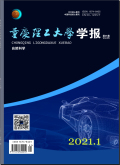重庆理工大学学报2024,Vol.38Issue(4):40-52,13.DOI:10.3969/j.issn.1674-8425(s).2024.02.004
工业机器人应用对出口技术复杂度的影响研究
The impact of the industrial robot implication on export technical sophistication:Evidence from the China's manufacturing industry
摘要
Abstract
Export technical sophistication serves as an important metric for gauging the technological level of a nation's export products.A higher level of export technical sophistication typically implies a more elevated position in the global supply chain,directly impacting the nation's international competitiveness and potential for economic growth.In the era of Industry 4.0,the global manufacturing sector is undergoing a revolution driven by automation and digitalization,with industrial robots,as representatives of advanced manufacturing technology,increasingly infiltrating various fields of manufacturing.China,as a global manufacturing leader,has been particularly proactive in the application of industrial robot technology.The government departments in China have released multiple industrial policies concerning industrial robots.In 2022,the installation volume of industrial robots in China accounted for more than 50%of the global share,and the density of robots in manufacturing reached 392 units per 10 000 people,exceeding the level of 2010 by 32 times. Research on the impact of industrial robot applications on exports has become a hot topic in recent years.A growing body of literature on this topic encompasses multiple research angles,including export volume,export product quality,position in the global value chain,and the complexity of export technology.However,scholars have not yet reached a consensus on certain issues.For instance,in the paper of export technology sophistication,different economy types may correspond to different variable relationships,making it necessary to conduct separate studies for China.It is noteworthy that existing literature using China as a research sample primarily focuses at the enterprise level.Therefore,this paper will delve into the provincial-level administrative regions in China,focusing on the analysis of the impact mechanism of industrial robots in manufacturing on export technical sophistication. The application of industrial robots can boost export technical sophistication.Enhanced perceptual capabilities,improved flexibility,and increased intelligence enable industrial robots to perform increasingly complex tasks.Besides,the high precision and stability of industrial robots ensure the high quality and technical content of products,thereby increasing the technical sophistication of the products. The mechanism through which the application of industrial robots enhances export technical sophistication is innovation.Innovation drives the transformation and upgrading of the manufacturing sector.The application of industrial robots can promote innovation in the manufacturing industry,and the industry's innovative activities can enhance the technical sophistication of its exports.Firstly,industrial robots capable of completing more difficult and complex manufacturing tasks bring more possibilities for product upgrades,allowing the production of products with higher technical sophistication.Secondly,the efficient functioning of industrial robots requires a higher level of process automation,meaning that installing and deploying industrial robots often leads to the restructuring and optimization of manufacturing processes,which can result in significant innovation. Additionally,the application of industrial robots and their associated digital technologies can generate more business data.By connecting and integrating previously fragmented data,businesses can unlock the intrinsic value of industry data,providing decision support for product improvement and innovation,thereby facilitating an increase in the technical sophistication of products. This paper is based on data from 31 provincial-level administrative regions(except Hong Kong,Macao,Taiwan)in China from 2008 to 2019,and it investigates the impact of industrial robot application in the China's manufacturing industry on export technical sophistication.The dependent variable is the technological complexity of manufacturing exports.The independent variable is the density of industrial robots.The control variables comprise trade openness,fiscal expenditure level,labor supply,level of R&D spending,vibrancy of the technology market,logistics infrastructure quality,foreign direct investment.After conducting operations such as replacing explanatory variables,adding control variables,considering external shocks,and removing special samples,the empirical results remain robust.To address the issue of endogeneity,this paper constructs instrumental variables using data from the U.S.industrial robot industry and the first lag of the explanatory variables,employing two-step GMM,iterative GMM,and 2SLS methods for regression estimation. The paper reveals the following findings:(1)The application of industrial robots can significantly promote the enhancement of export technical sophistication;(2)The use of industrial robots affects export technical sophistication through innovation channels;(3)The vitality of the technology market and the degree of intellectual property infringement respectively intensify and weaken the relationship between the application of industrial robots and export technical sophistication.Therefore,it is imperative for the government to further promote the intensified application of industrial robots within the manufacturing sector.Concurrently,there should be a proactive maintenance of the innovative environment,coupled with a resolute crackdown on patent infringement activities,in order to invigorate the intellectual property trading market with new vitality.关键词
出口技术复杂度/工业机器人/制造业/技术创新/知识产权保护Key words
export technical sophistication/industrial robots/manufacturing industry/technology innovation/intellectual property protection分类
管理科学引用本文复制引用
冯春风,冯鲍..工业机器人应用对出口技术复杂度的影响研究[J].重庆理工大学学报,2024,38(4):40-52,13.基金项目
广西研究生教育创新计划资助项目"全球产业链重构背景下我国制造业数智化转型与国际竞争力提升研究"(YCBZ2023034) (YCBZ2023034)
广西哲学社会科学规划研究课题重点项目"重大公共卫生事件冲击下的广西地方金融风险防范化解研究"(20AJY001) (20AJY001)

